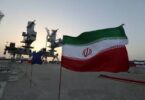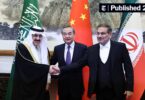Addressing the concluding ceremony of Technical Conference, Prime Minster Shahid Khaqan Abbasi urged the foreign companies to avail the oil exploration opportunities in Pakistan. He said security situation has changed altogether. He claimed that after the improvement of law and order situation, various areas were now open for exploration which was unsafe in the past.
The Prime Minister observed that last four and half years proved to be historic for the energy sector in Pakistan as the country has replenished its reserves by successfully making around 100 discoveries. However, a lot more is yet to be done as the country would require more energy to achieve its growth targets. He said that the country was fast moving towards optimal energy mix by exploiting its potential in coal wind and hydro sector.
The Prime Minister has rightly emphasized on massive foreign investment in oil and gas exploration to achieve self reliance in the production of crude oil for which the refining facilities are available. The production of crude oil is stagnant at 97,000 barrel per day and the refining capacity is 400000 barrel per day. The total oil consumption is 300000 barrels per day. The oil import bill is $ 7.3 billion per year. The oil producing countries may curtail the quantum of crude oil production to avoid losses in production cost. In this scenario our oil import bill will go up exacerbating the balance of payment situation.
The new discoveries have to be made operational on fast track basis and production has to be enhanced from the already operational oil well. The daily production from the oil wells in the southern districts of KP is much below the optimum level. Moreover, the federal government has not extended assistance to the KP government to set up an oil refinery in Karak District. Crude oil from three different oil fields is transported in oil tanker to the refineries in Punjab. Likewise, the scope of exploration is not being extended to some other districts of KP where the chances of new discoveries are very bright.
No doubt security environment has apparently and temporarily improved but it is still not entirely satisfactory. The martyrdom of Major Ishaq in operation against terrorists in Kulachi a few days ago and that of a senior police officer Police Officer Muhammad Ashraf Noor in Peshawr on Friday is a warning from the militant outfits’ that they are strong enough to hit the targets of their choosing. Why it seems whenever, the government which has buried the NAP boasts of stability and extermination of terrorism, the terror attack takes place particularly in KP and Baluchistan???? These tragic incidents negates the tall claims of the ex Prime Minister Nawaz Sharif , sitting Prime Minister Shahid Khaqan Abbas and federal Ministers about breaking the back of terrorists and wiping out terrorist dens and sleeper cells.. Foreign investment is a fine weather business and the incidents of terrorism in Baluchistan and KP impact the investment in oil exploration in the country. The sleeper cells in Southern Punjab and Interior Sindh are yet to be cleared. The federal and provincial governments have pushed the implementation of National Action Plan to the bottom of priority list. The over all security environments are not conducive for foreign investment. The incidents like abduction of Chinese couple in Quetta in May and China’s Embassy letter to the Interior Ministry for providing security to its diplomats certainly scare away foreign investment. The paralysis of the federal government by the sit-in of zealots of religious parties has not been received well by foreign diplomats. They will certainly caution the companies of their countries to be careful while embarking upon investment in Pakistan.
The contention of fast movement towards the target of optimal energy is not realistic. The country is miles away from this goal. The two coals based thermal power plants are under completion and the Chinese investors are no longer interested in the construction of thermal power plants at Pind Dadenkhan and Gaddani. Chairman WAPDA has recently informed the standing Committee on Water and Power that China’s conditions for the financing of Dia-Mir Basha Dam are not acceptable and the project has been with drawn from CPEC framework. Nelum Jehlum hydro power project is not expected to start power generation early 2018. The schedules for the construction of Monda and Kurram Tangi hydropower projects have not been announced. The contribution of wind power is less than 2 percent in the total energy mix. The share of costly thermal power generated by furnace oil and diesel is 70 percent in and that of hydro, nuclear and other sources is hardly 30 percent. Foreign investment particularly in oil exploration will not come unless the security environment is significantly improved on permanent basis for which the implementation of all points National Action Plan is inevitable which has been shelved because of political expediency and vested interest.






